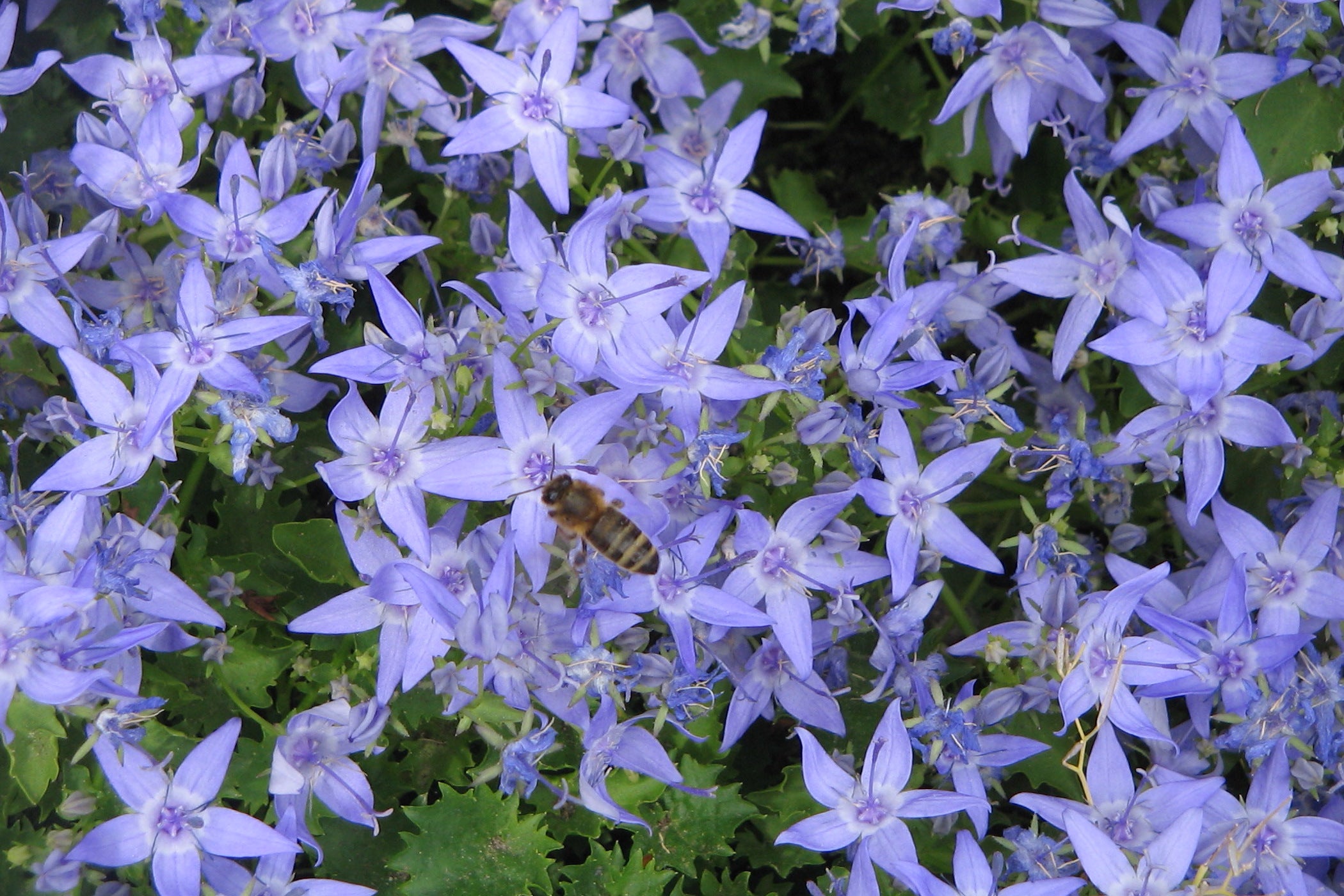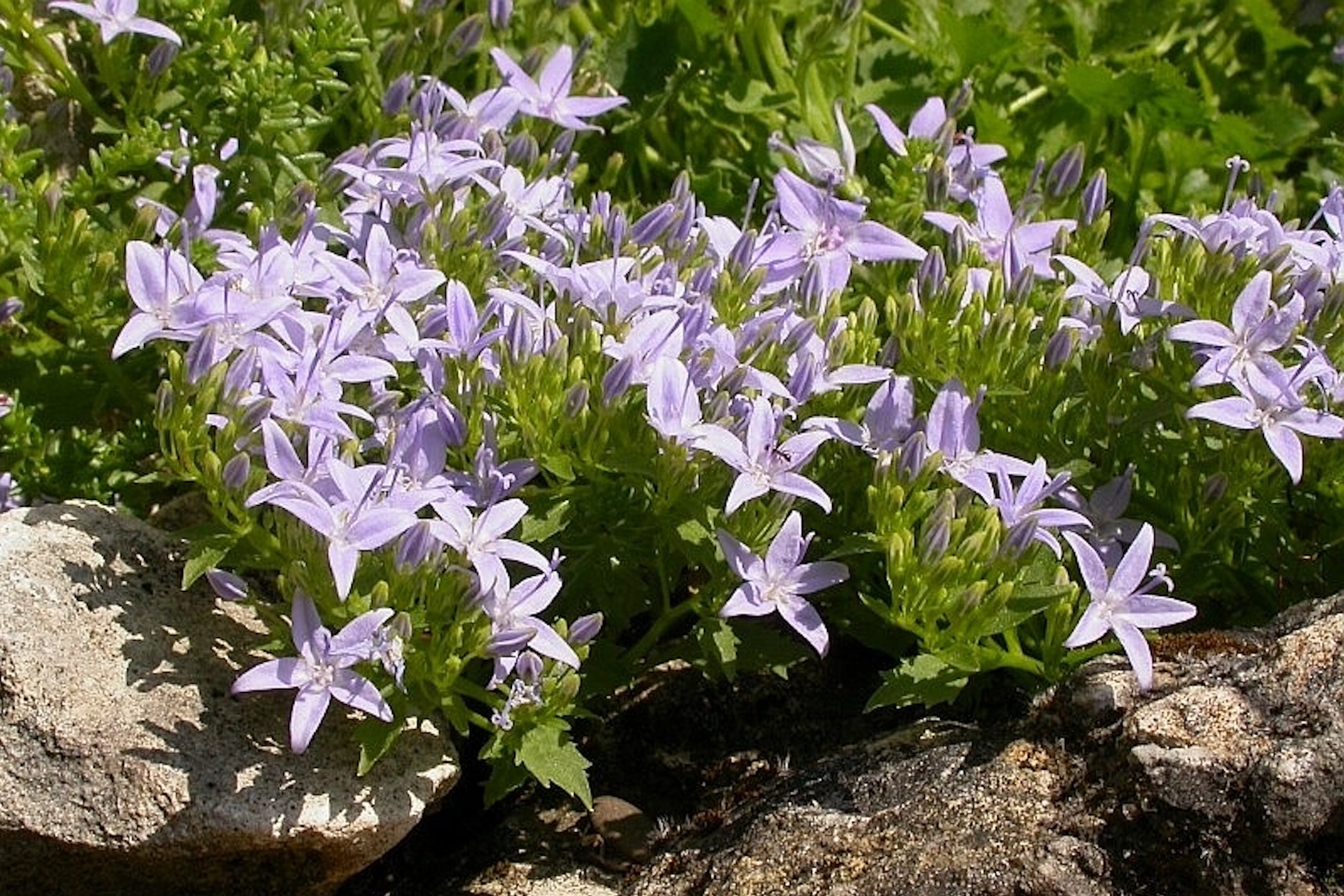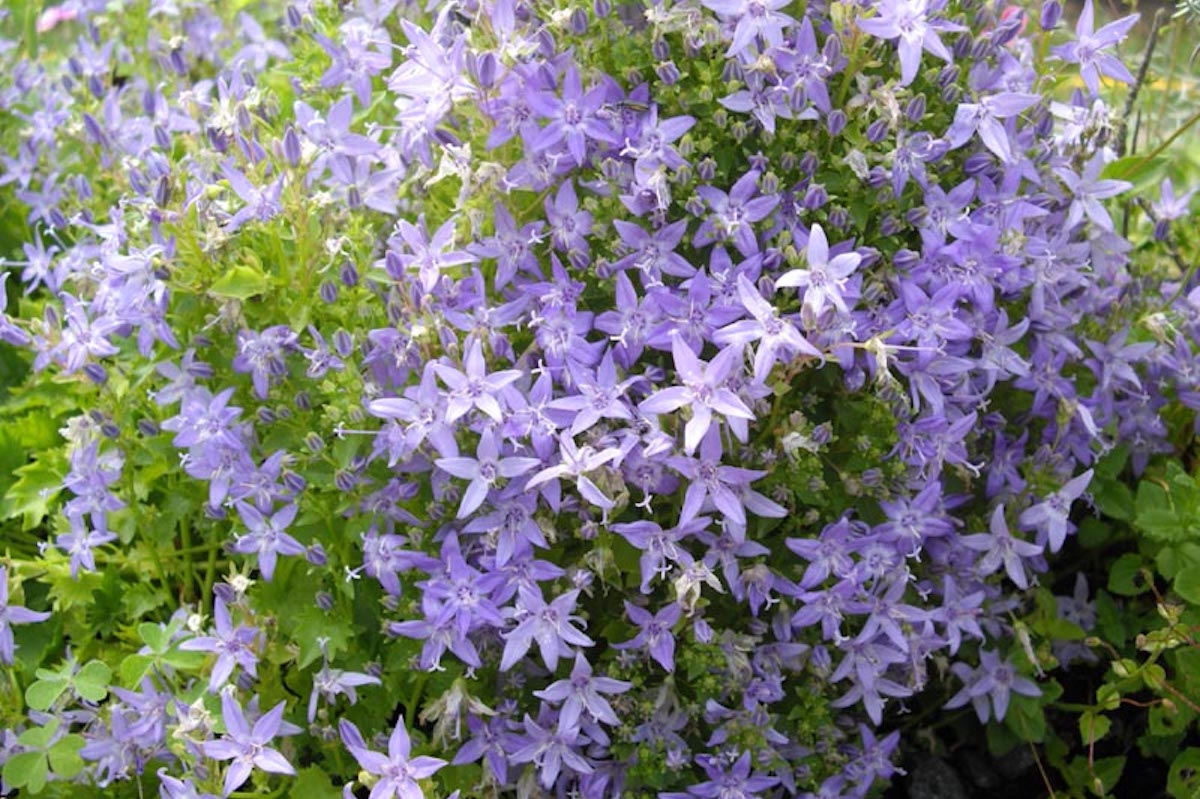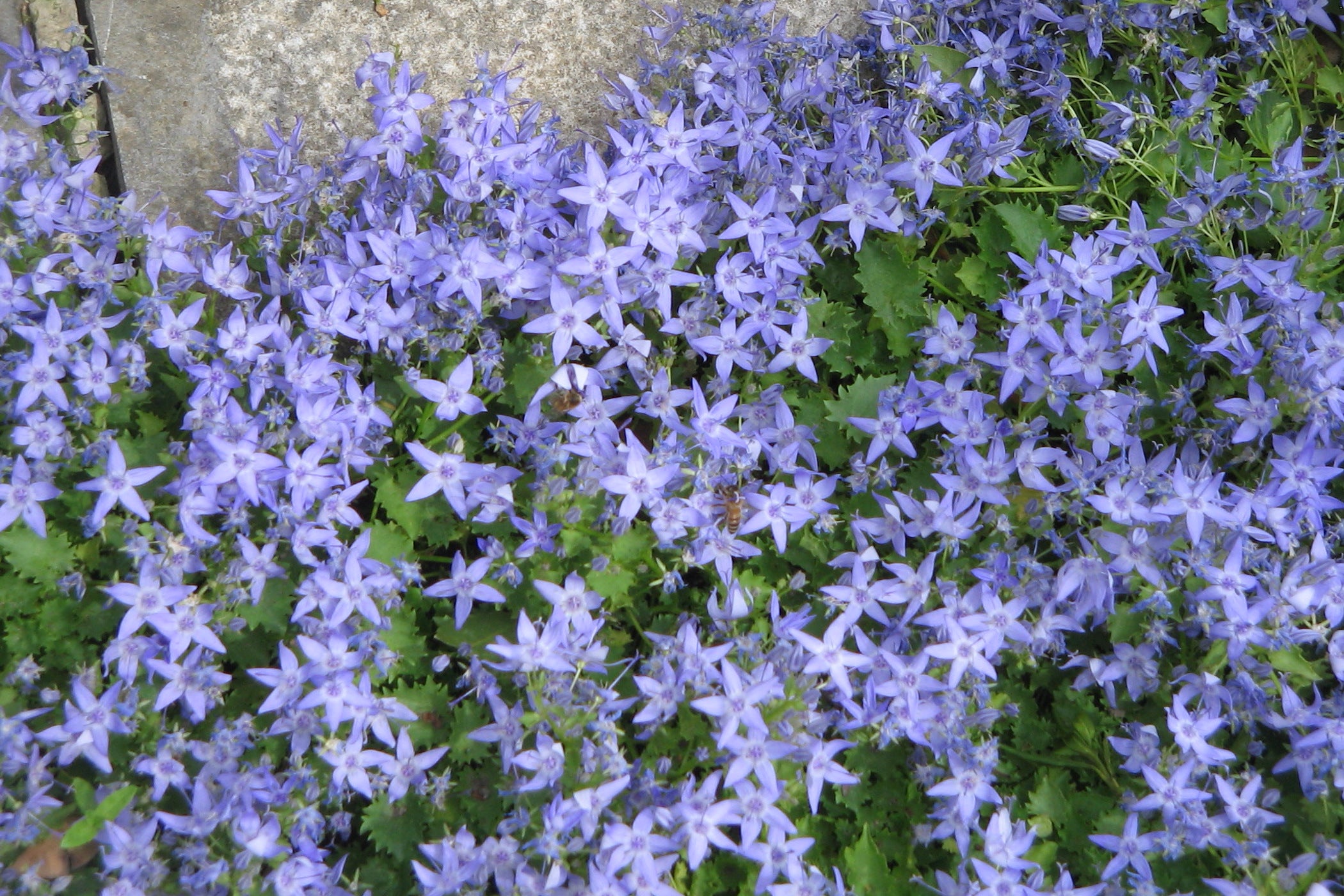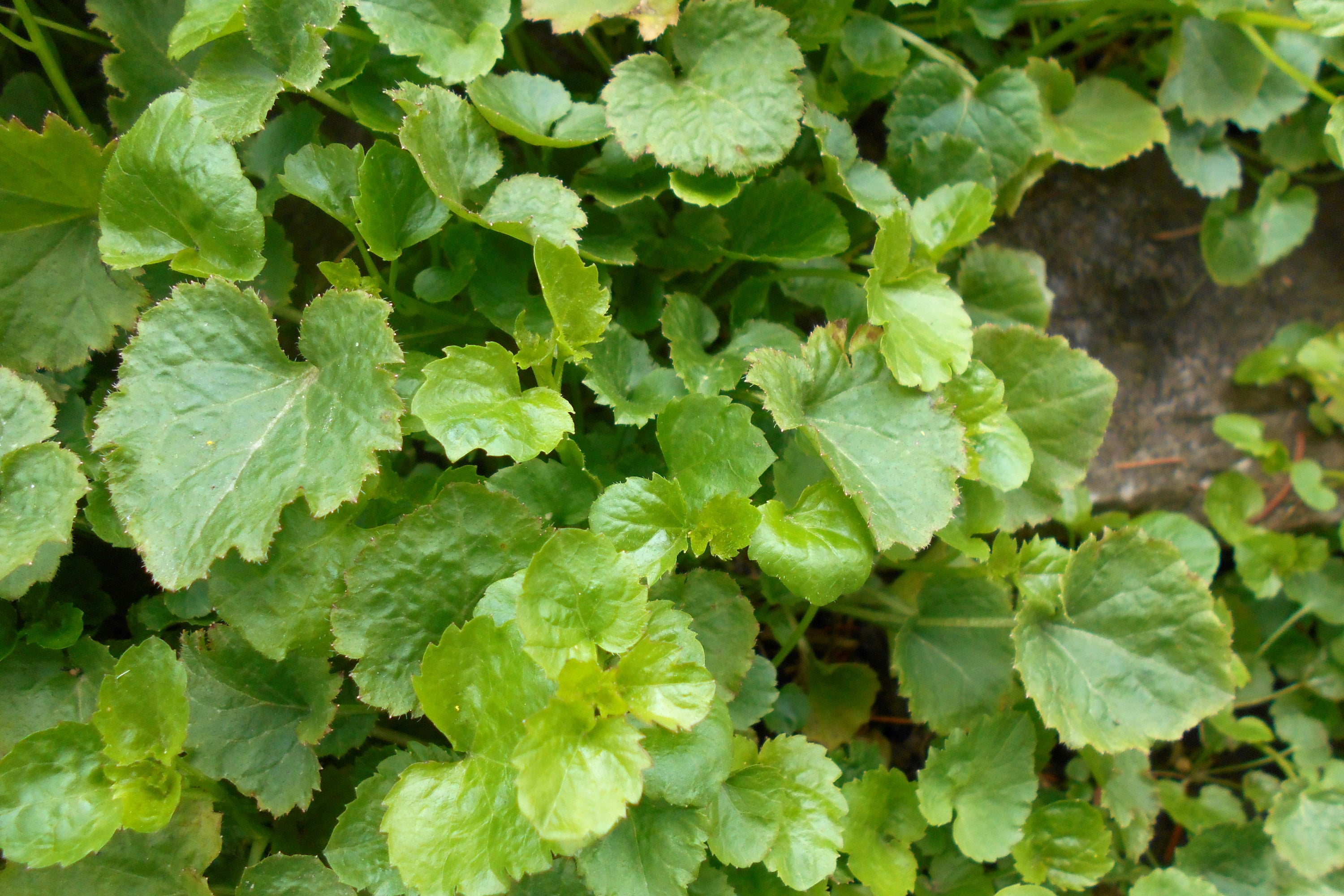Campanula garganica
Approx. 0.5 litre pot
About this cultivar:
Campanula garganica is sometimes commonly called the Adriatic or Gargano bellflower because the species was discovered growing at the base of Italy’s Mt. Gargano in 1827. Hence the species name too.
The Adriatic bell-flower is a wonderful spreading, low growing, mat-forming, perennial. The mid-green oval leaves are evergreen or semi-evergreen. and it produces masses of varying deep to pale, blue to purple, star-shaped flowers in summer. It will form carpets dense enough to repel most weeds but will allow many bulbs to poke through in spring. Try it near paths,at the front of the border or in and around walls. Perhaps even use it as ground-cover.
Has the Royal Horticultural Society Award of Garden Merit (RHS AGM).
- Position: Full sun, partial shade
- Soil: Almost any soil, grows well in Ballyrobert
- Flowers: June, July, August
-
Other features: Royal Horticultural Society Award of Garden Merit (RHS AGM),
Great Ground Cover, Grows well in Ballyrobert - Hardiness: H5 - Hardy in most places throughout the UK even in severe winters (-15 to -10°C), Fully hardy - grows well in Ballyrobert!
- Habit: Bushy, Clump forming
- Foliage: Deciduous
- Height: 10 - 20 cm (0.3 - 0.6 ft)
- Spread: 15 - 45 cm (0.5 - 1.5 ft)
- Time to full growth: 2 to 5 years
- Plant type: Herbaceous Perennial
- Colour: Purple, Blue, green
-
Goes well with: Hosta, Geranium, Lupin, Inula, and Phlox.
About this genus:
Campanula is a wide-ranging genus (over 500 species!) of plants that contains everything from rare, difficult-to-grow wimps to vicious invasive thugs. Over the years, we have killed (with love or violence) several Campanula cultivars and discarded others, but along the way we found some gems that do great in our own garden: no weaklings and no violent spreaders. We offer them, all perennials, here.
Campanula are late spring and summer flowering perennials that prefer partial sun - but many will tolerate deep-shade and full-ish sun. They grow well in a variety of soils - almost anywhere that isn't too extreme. Campanula usually produce bell-shaped flowers that attract all sorts of wildlife. This feature is so emblematic, that plant taxonomists have even coined the word "campanulate" to mean any bell-shaped flower (note also that Campanula is Latin for "little bell"). However some species of Campanula have 'split-open-type' bell flowers which may start life looking bell-like but soon don't look like bells at all (unless you folded them and glued them together in some origami style).
When deciding plant combinations for the genus it is difficult because the cultivars vary so much! From ground cover to 6 feet tall! So in this section I don't think I'll bother and maybe try to be specific to the cultivar on offer. Having said that, Campanula are the one of the most versatile plants in the garden which might explain their ubquity..

